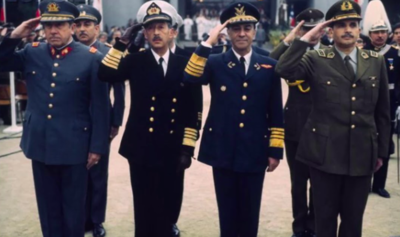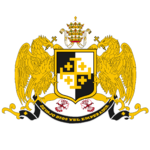2003 Creeperian coup d'état
| 2003 Creeperian coup d'état | |||||||||
|---|---|---|---|---|---|---|---|---|---|
| Part of the Creeperian Conflicts | |||||||||
 The military leaders of the coup. | |||||||||
| |||||||||
| Belligerents | |||||||||
|
|
Supported by: | ||||||||
| Commanders and leaders | |||||||||
|
|
| ||||||||
| Units involved | |||||||||
| Strength | |||||||||
| 650 soldiers | 102,180 soldiers | ||||||||
| Casualties and losses | |||||||||
|
459 dead 66 executed 125 imprisoned | 138 dead | ||||||||
| 597 military dead, 19 civilians dead, thousands missing | |||||||||
Part of a series on the |
|---|
| History of Creeperopolis |
 |
|
|
The 2003 Creeperian coup d'état (Creeperian Spanish: Golpe de Estado Creeperiano de 2003), also sometimes referred to as The Coup (Creeperian Spanish: El Golpe), The Restoration (Creeperian Spanish: La'Restoración), or 18-J, was a military coup d'état in Creeperopolis that deposed the totalitarian government. On 18 June 2003, after four years of totalitarian rule, overt government corruption, political unrest, severe hyperinflation, and surging crime rates, the Creeperian Armed Forces, lead by Chief Field Marshal Augusto Cabañeras Gutiérrez, Chief Admiral Edmundo González Robles, and Chief General Arturo Merino Núñez, seized power in a coup d'état. and established a short-lived transitionary military junta.
During the coup, the army, navy, and air force attacked the Council of Mayors building in San Salvador during a meeting of Alfonso VI with his government ministers and high ranking loyalist mayors. Many were killed or later executed. The San Salvador Imperial Palace and other important government buildings were secured by the armed forces with little to no resistance from imperial guardsmen. The military declared martial law in the wake of the coup and a 10pm curfew was initiated across the country.
The armed forces established a military junta and initiated large-scale purges of political and military officials. Cabañeras Gutiérrez gained significant power following the coup and is considered to be one of the most powerful people in Creeperopolis. The military proclaimed Alfonso VI's second and oldest surviving son, Alexander II, as the new Emperor, but the military held absolute authority and control until he was coronated on 15 September 2003 and the junta was officially dissolved.
The coup marked a watershed moment in Creeperian history and began the true modernization of the nation and the resurgence of its economy. The coup has been proclaimed by Creeperian propaganda as an event which saved the nation from its impending demise.
Contents
Background
Political situation
Military situation
Economic recession
Planning the coup
Military action
Casualties
Alfonso VI's death
Aftermath
Military rule and transition
Political ramifications
Purges
Reactions
Domestic reactions
International reactions
Legacy
In popular culture
Commemoration
See also
Notes
References
Bibliography
- Pareja Palau, Orlando (2013). El Autogolpe de 2003 [Coup d'État of 2003]. Historia de Creeperopólis (in Creeperian Spanish). 2 (2 ed.). San Salvador, Creeperopolis: Impresión Creeperiano. pp. 1–554. doi:10.1017/S0022216X00001425. ISBN 9780742537415. JSTOR 156558.CS1 maint: unrecognized language (link)






